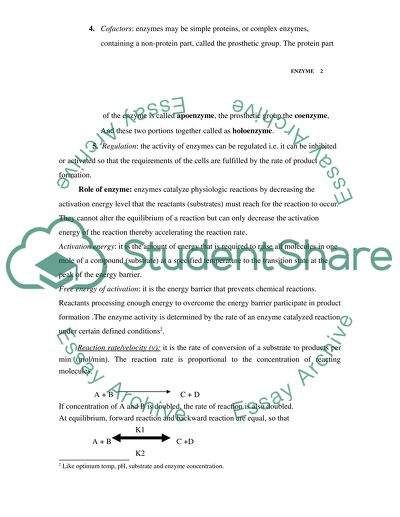Factors influencing the rate of enzyme catalysed reactions Essay. Retrieved from https://studentshare.org/miscellaneous/1501803-factors-influencing-the-rate-of-enzyme-catalysed-reactions
Factors Influencing the Rate of Enzyme Catalysed Reactions Essay. https://studentshare.org/miscellaneous/1501803-factors-influencing-the-rate-of-enzyme-catalysed-reactions.


